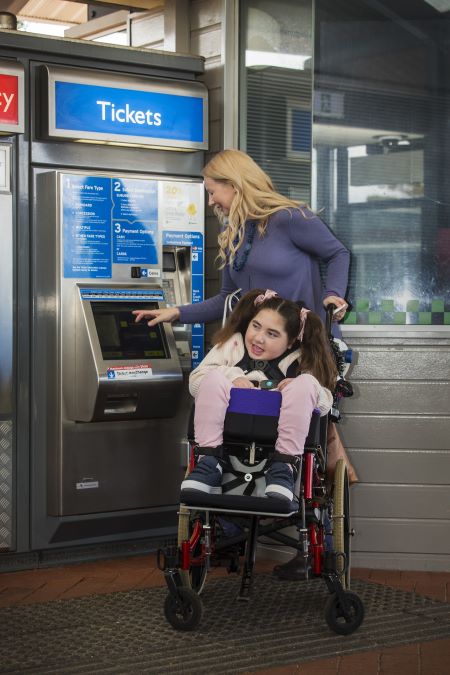Companion Card and young children
Please note that having a particular diagnosis, an NDIS plan, or approved funding for community access does not automatically mean that the applicant is eligible for a Companion Card.
A Companion Card can only be issued to a child if they require significant attendant care support due to the impact of their disability rather than age alone. The need for support must be lifelong or likely to be lifelong.
Typically, a child under 10-12 years old without a disability would not be accessing the community independently. Instead, they would normally have a parent or guardian with them most of the time when out and about. Therefore, the Companion Card application must demonstrate that the support needs of the applicant are significantly above the standard parental supervision requirements for a child of a similar age.

Eligibility examples
Each application is assessed individually considering all presented information and documents. The examples below are provided as an illustration of who may be eligible for a Companion Card. Similarity to these examples does not guarantee whether a particular application will be declined or approved.
Possibly ineligible * |
Possibly eligible |
|---|---|
| A child is at an increased risk of absconding or harm to themselves and others and requires much closer supervision than most children of a similar age | A child requires 2:1 support ratio as evidenced in medical reports and other documents |
| A child becomes emotionally dysregulated much more easily and requires longer to settle than most children of a similar age | A child requires medically trained support at all times as evidenced in medical reports and other documents |
| A child has significant food allergies or other physiological responses to external factors, and requires much closer supervision than most children of a similar age | A child requires complex medical equipment e.g. percutaneous endoscopic gastrostomy (PEG) feeding system, ventilator / oxygen, etc. as evidenced in medical reports |
| A child has significant communication deficits and requires help to communicate their needs, make decisions etc. at a higher level than most children of a similar age | A child is non-verbal, learning to use an augmentative and alternative communication (AAC) device |
| A child with disability is in care of a single parent / guardian and / or has multiple siblings, leading to the parent / guardian requiring additional support when accessing the community | A child is in placement with Child Protection / Department of Communities and only accesses the community with a support worker |
* Unless other significant comorbidities are present.



